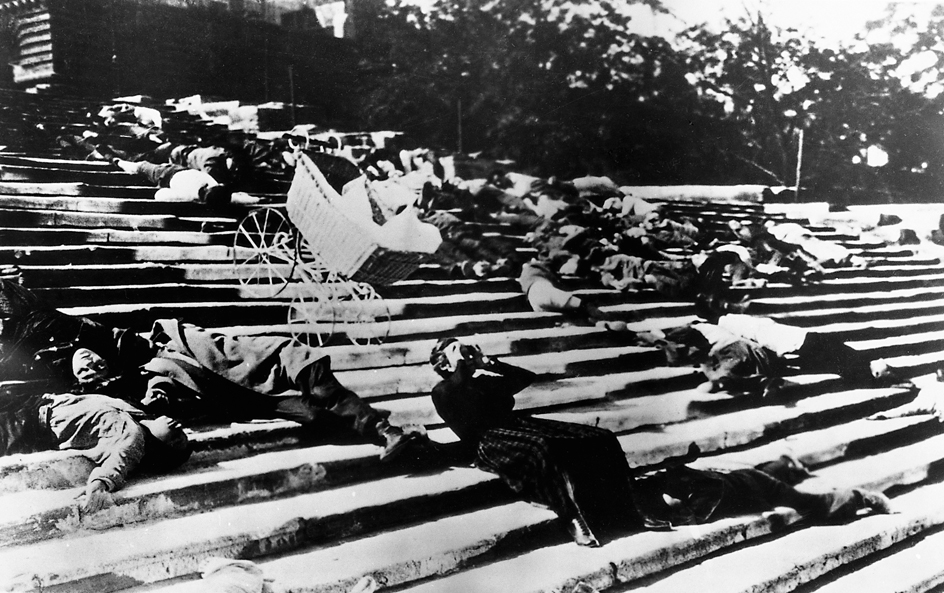Eisenstein, Sergei Mikhailovich << EYE zuhn `styn,` sehr GAY mih KY luh vihch >> (1898-1948), was a Russian motion-picture director, theorist, and teacher. He became noted for his methods of film editing called montage (the arrangement of shots in sequence to suggest a symbolic meaning). For example, in The Battleship Potemkin (1925), a shot of an angry ship’s crew, combined with soup bubbling in a kettle, implies that the sailors’ resentment will soon boil over into mutiny.

Eisenstein’s early films, including Strike (1925), Potemkin, and October (also called Ten Days That Shook the World, 1928), were semidocumentaries that pioneered in the use of nonprofessional performers. Eisenstein’s other films include The General Line (1929), Alexander Nevsky (1938), and Ivan the Terrible (two parts, 1944-1946).
Eisenstein was born on Jan. 23, 1898, in Riga. He entered filmmaking in 1924. Due to political censorship, he completed only six feature films. His film writings have been published as Film Form, The Film Sense, Notes of a Film Director, and Immortal Memories. He died on Feb. 10, 1948.
